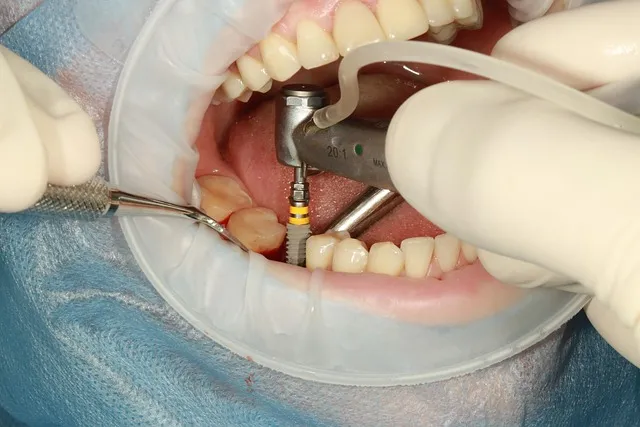List of 10 Home Remedies For Gums Pain Relief
 Here are 10 ways to take care of that annoying pain relief for gums for instant relief:
Here are 10 ways to take care of that annoying pain relief for gums for instant relief:
#1 Clove bud -
Properties: Clove contains oils that have antibacterial and antimicrobial properties. It also gives a numbing sensation in the gums, a pain reliever. How to use:- Take a bud of clove and place it in the corner of your mouth or the area of the swollen gums.
- You will find immediate relief from your pain for at least 4-6 hours.
- Remove the clove bud and replace it with another if the pain persists.
#2 Salt water gargle -
Properties: Salts are well known for their preservative properties and help keep bacteria at bay. Sea salt is commonly used to rinse the mouth for oral hygiene and provide Pain relief for gums. Epsom salt (Magnesium sulfate) has healing properties that reduce soreness and pain and soothes the skin. How to use:- Make a concentrated salt solution in water, i.e., take two tablespoons of salt and completely dissolve it in hot water.
- Gargle with this saltwater 8-10 times for 10-15 seconds or until the swelling reduces.
- Repeat twice a day.
#3 Coconut oil -
Properties: Coconut oil has a moisturizing effect that soothes the redness and swelling in gums. Its antimicrobial properties promote wound healing. "Oil pulling" is a well-known method of rinsing the mouth with oil. This softens stiff gums and calms inflamed gums. It is commonly used to wash out bacteria between teeth and gums. How to use:- Oil pulling can be done using any vegetable oil.
- Take 2 ml of oil and drizzle it around the gums.
- Use your finger to gently massage the gum around the teeth and the gums for 2-5 minutes.
- Do not swallow the oil since it contains the gums' extracted bacteria.
#4 Tea bag compression -
Properties: Green tea, rose tea, and black tea contain tannins with astringent properties that swiftly contract the paining gums and provide relief. How to use: Hot Compress - Dip a teabag of your choice in hot water.- Let the tea leaves soak in hot water. Then instantly place the soaking tea bag on the inflamed gum.
- Apply a little pressure as is done in a regular hot compression.
- Hot water soothes the gums from severe pain.
- Let the tea leaves soak in the cold water, then instantly place the soaking tea bag on the inflamed gum.
- Apply a little pressure as is done in a regular hot compression. Ice-cold water numbs the gum giving temporary relief.
#5 Homemade Dental spray -
Properties: Essential oils are antifungal and antibacterial. They help control bad breath and fight any infection that may be causing gum pain. How to use:- Please take a few drops of essential oils such as cinnamon oil, peppermint oil, eucalyptus oil, or chamomile oil, mix it in 50 ml warm water, and mix well.
- Transfer the mixture to a clean spray bottle.
- Spray the affected area with the homemade essential oil dental spray every few hours to soothe the gums.
#6 Homemade antibiotic paste -
Properties: Turmeric is antiseptic, antibacterial, and anti-inflammatory that prevents the growth of bacteria. Baking soda reduces plaque formation and soothes any burns in the injured gum area. How to use:- Take a teaspoon of turmeric.
- Add a teaspoon of baking soda and mix the two with a few drops of water to make a creamy paste. The paste must be smooth and not gritty, further hurting the gums.
- Apply the paste around the teeth and gums and leave overnight.
#7 Babul tree bark -
Properties: Known as the "Healing tree," every part of the Babul tree (pods, leaves, bark) can be used to improve oral health. It strengthens gums and teeth due to its astringent (contraction of cells) properties. How to use:- Chew on a medium-sized stick of bark from the Babul tree for a few minutes.
- Repeat with a fresh stick once the bark shreds and wears out.
#8 Garlic -
Properties: Garlic contains anti-inflammatory and antibacterial properties. Though garlic may leave traces of smell and spicy taste, it is widely used to treat gum pain. How to use:- Boil a few cloves of garlic and smash the garlic to make a paste.
- Apply the paste to the gum and leave overnight.
- Garlic can treat an infection that causes swelling in the gums.
#9 Aloe vera gel -
Properties: Antioxidants present in aloe vera promote wound healing. Any gum injury can benefit from aloe vera's soothing and cool effect. You may also check Aloe vera's drink. How to use:- Place the aloe gel in the freezer for an hour before use.
- Then gently apply the gel with your finger and leave overnight.
- Cool aloe gel will soothe inflamed gums and reduce swelling.
#10 OTC medication -
Ibuprofen and Diclofenac are OTC pain killer tablets that relieve toothache and gum pain. You can take these tablets every 6 hours until the pain reduces. Do not exceed taking these drugs for more than 5- days. You can take OTC antibiotics such as Amoxicillin to treat an infection in the gums. Several ayurvedic oral gels are available OTC to treat infected gums and provide instant Pain relief for gums.Caution to take before applying pain relief for gums -
These remedies to manage and relieve gum pain at home are temporary fixes. You will find relief from the pain for a few hours after using the remedy. They must be done every few hours or until the pain subsides. If you suffer from gum pain for a prolonged duration, seek dental advice to discover the underlying cause. Finding the root cause of the issue and fixing it can keep you safe from unwanted gum pain.Precaution
Several ayurvedic home remedies that may prove harmful are freely listed on the internet. It is safer to understand, with reasoning, why one treatment remedy is better than the other. Here are a few precautions that must be taken:- Do not apply lemon or orange juice on the affected gum area. Juices containing citric acid will irritate the gum and lead to further inflammation of the gum. This will cause more pain to the gums. Avoid citrus fruits.
- Do not gargle your mouth with Apple Cider Vinegar (ACV). ACV is acidic and will burn and cause itching in the inflamed gums.
- Avoid crunchy foods such as biscuits, apples, samosas, and chips. You must also avoid eating dry fruits until the gum is healed completely.
- Avoid teasing the affected gums with your tongue. You should constantly assess the affected site, but leave your gums alone!
FAQs -
Book an online appointment with the Best Dental Doctors in India.The bottom line -
Swollen and inflamed gums are a common manifestation. And because gums are so sensitive, they are easily irritated by simple irritants. Hormonal changes, malnutrition, and unhygienic oral habits may lead to recurring gum pain. Eating hard foods can scratch the protective lining of your gums, leading to an infection, swelling, and pain. Maintaining oral hygiene, understanding the sensitivity of your gums, eating healthy and nutritious food, and choosing the right toothpaste/toothbrush are key to maintaining strong teeth and healthy gums free from pain. Also Read: Why You Should Treat Cavities ASAPFrequently Asked Questions
How long does gum pain last?
Gum pain can last between 3 and 7 days if treated early. Gums are a sensitive part of the mouth and must be treated with utmost sensitivity to enduring faster relief from pain. Several instant remedies are available to treat painful gums.
What is the fastest way to reduce swelling in gums?
Saltwater gargling is the most effective in reducing swelling in aching gums. Repeating the process three times a day reduces swelling altogether in three days.
What causes swelling in gums?
Abscess build-up in the gums is an indication of an infection. Brushing the teeth too hard causes ulcer formation, and eating hard foods may irritate the gums and cause inflammation. Such an environment is favorable for the growth of bacteria, which eventually causes an infection, leading to swelling in the gums.

Reviewed by







